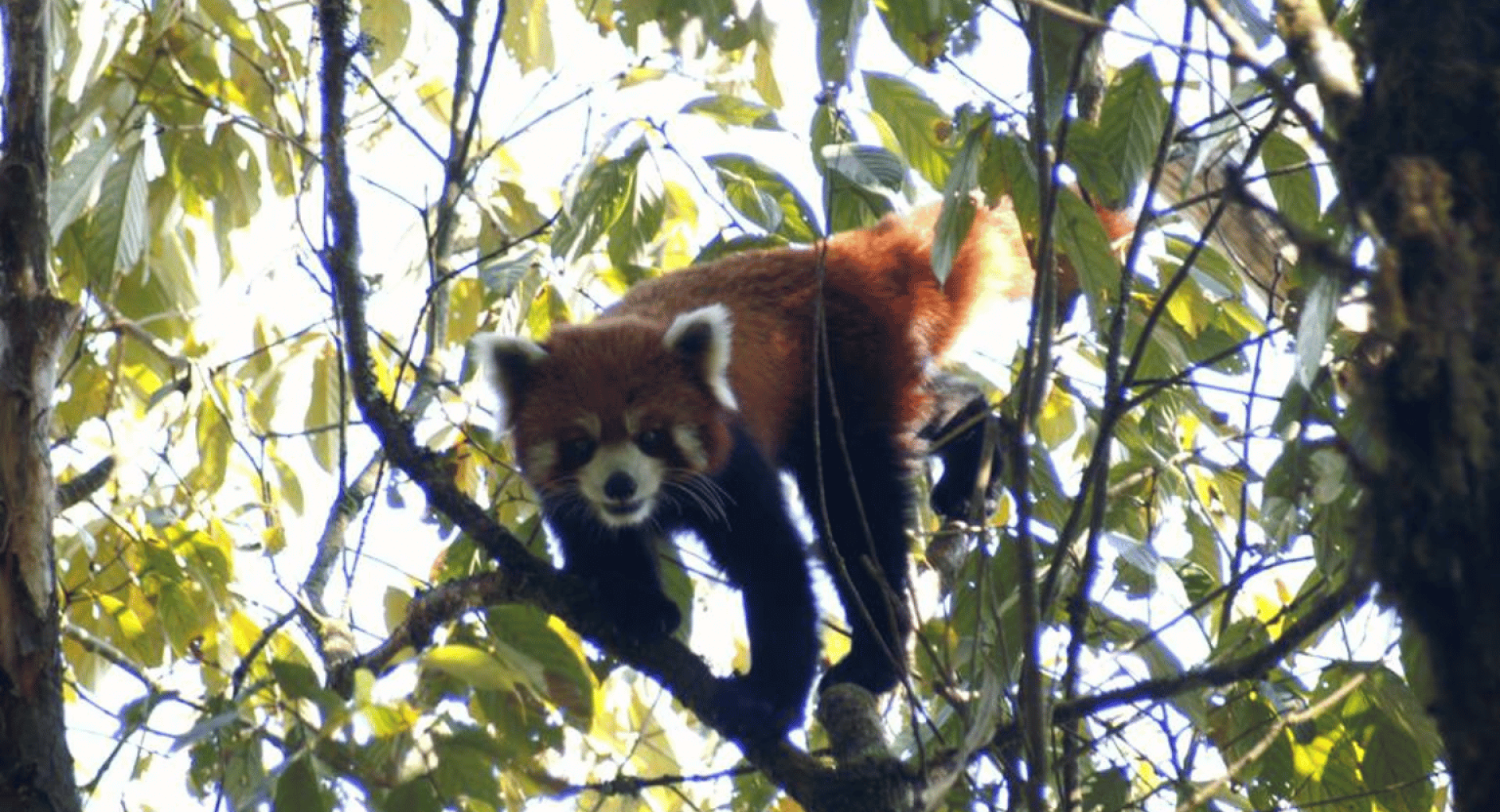
Victoria Kaml of Birmingham Zoo shares her experience planting a red panda home in a critical place for conservation.
Hello! My name is Victoria Kaml and I am the Lead Animal Care Professional of the Predator department at the Birmingham Zoo. I have been working at the Birmingham Zoo for four years and have had the privilege of working with four red pandas. Red pandas are a species that quickly became my favorite once I discovered them and they were always at the top of my list of species I wanted to work with at a zoo. Red pandas are a species that I care passionately about and knew that I wanted to work on a red panda conservation project when applying for a PiCA grant.
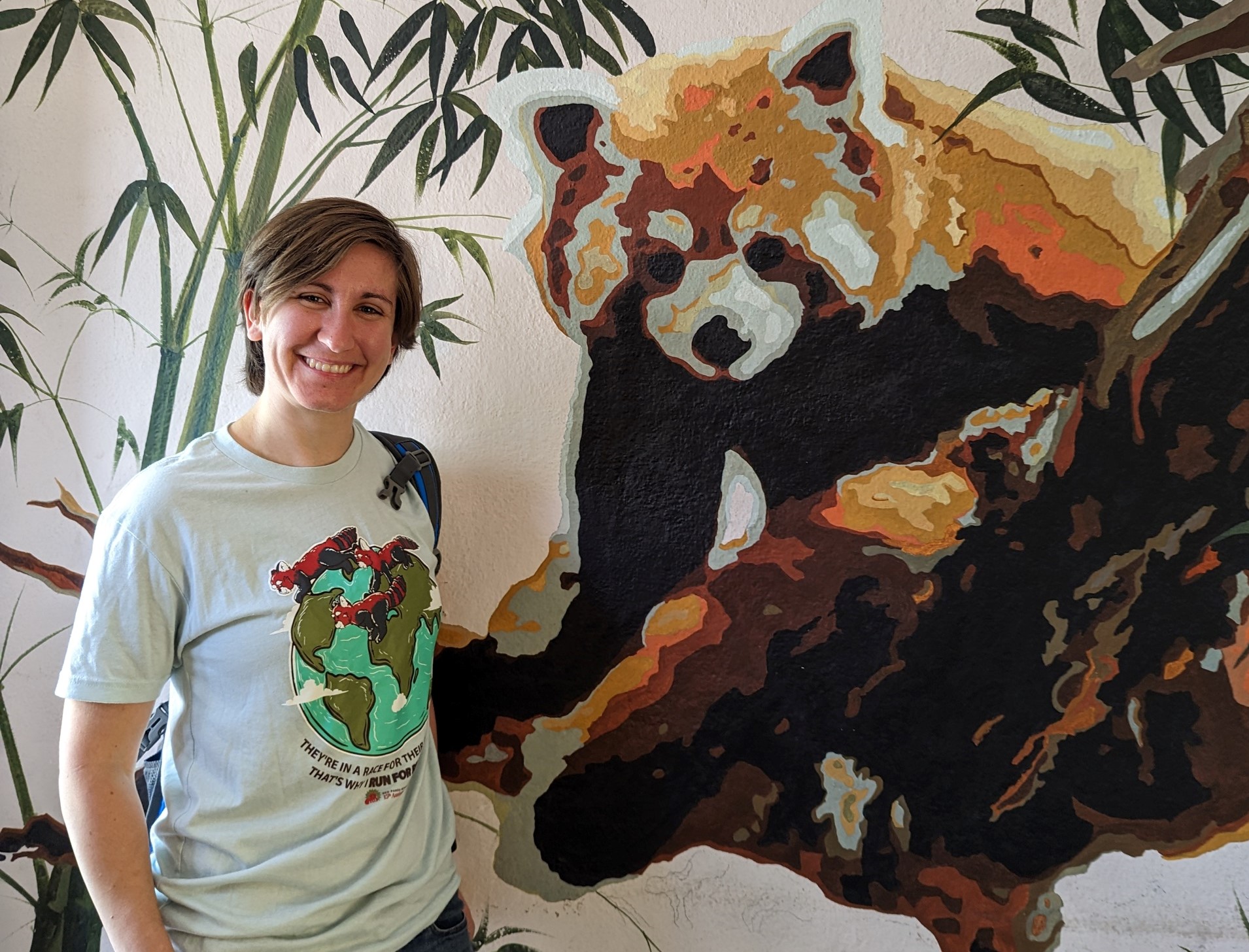 Birmingham Zoo's Victoria Kaml at RPN office in Kathmandu, Nepal.
Birmingham Zoo's Victoria Kaml at RPN office in Kathmandu, Nepal.
The Birmingham Zoo has an amazing program called Passion Into Conservation Action (PiCA). The PiCA program allows employees to submit conservation research projects that the zoo will fund. I was fortunate to receive a grant to assist the Red Panda Network (RPN) with their habitat restoration project in Jaubari, Nepal. Habitat loss and fragmentation are the biggest threats to red panda conservation. RPN works with local communities and government organizations to buy land and plant trees and vegetation to restore degraded forests in red panda territories. Thanks to their efforts and collaboration with local communities, RPN has planted over 643,000 trees in red panda habitat! My grant was to assist RPN on their habitat restoration project by traveling to Jaubari and helping take care of the saplings in the nursery, plant trees in the restoration site, and help build fences to keep livestock out of the restoration area.
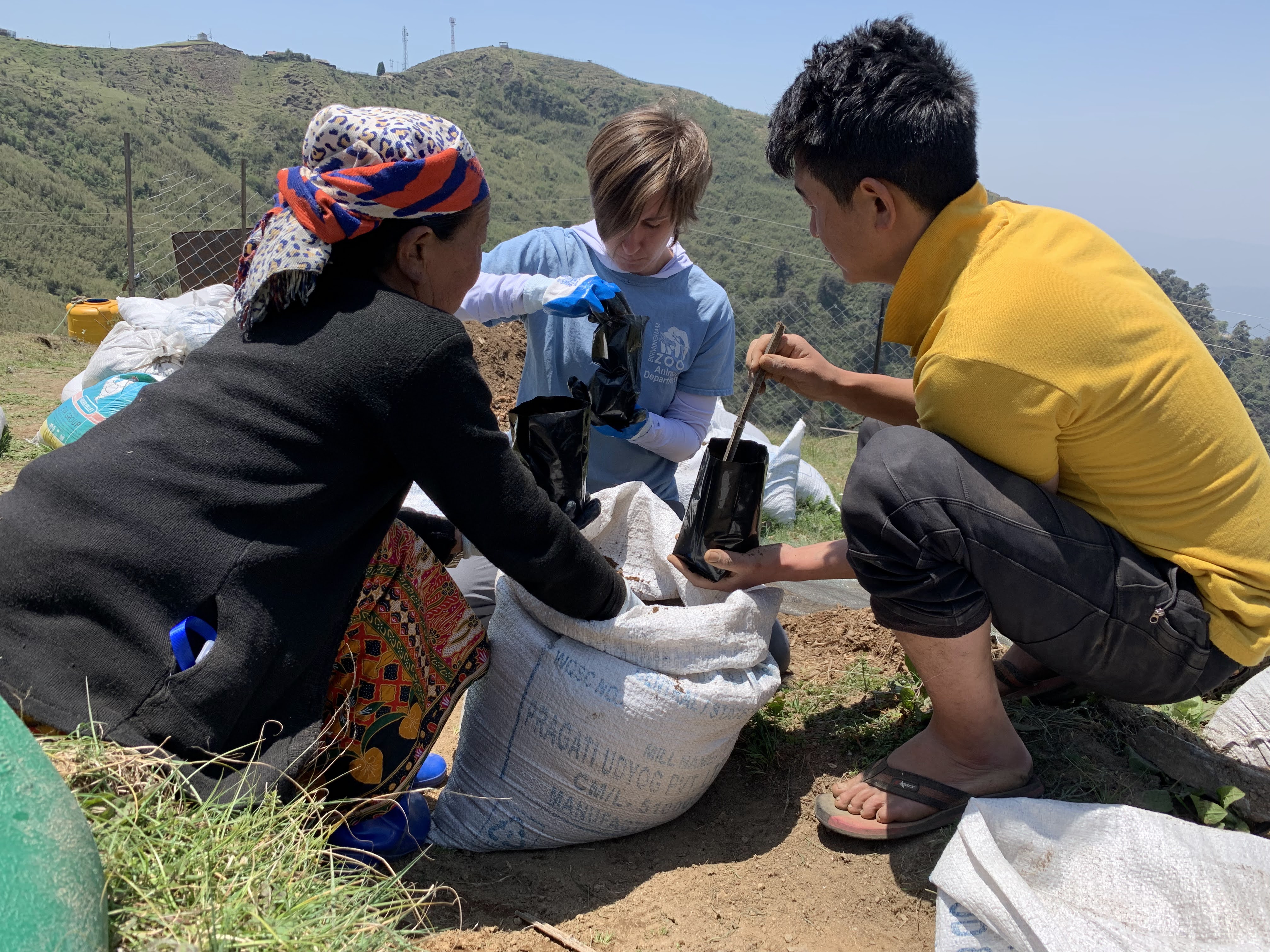 Victoria working with local nursery guardian, and guide, Naresh, in Jaubari's Forest Conservation Nursery.
Victoria working with local nursery guardian, and guide, Naresh, in Jaubari's Forest Conservation Nursery.
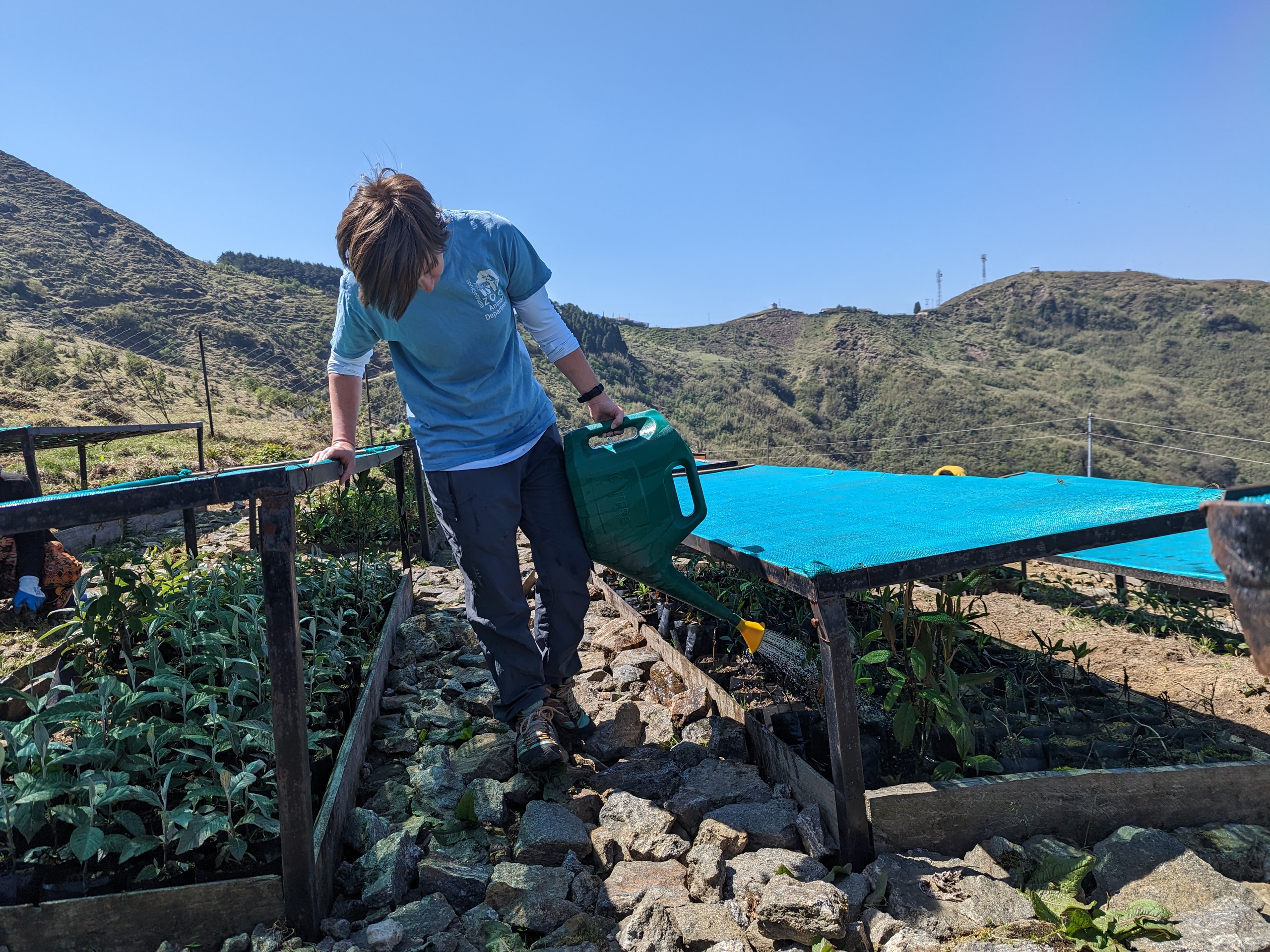
Victoria working hard in the Jaubari nursery.
From the moment I arrived in Jaubari, the partnership between the village of Jaubari and RPN was apparent. From the giant sign near the restoration site talking about the restoration project, to the small signs about reducing waste and recycling, it was clear to me that RPN works closely with the village of Jaubari. Throughout my stay, I discovered that many of the villagers work in the nursery for the RPN and help out with the restoration project. I also learned that the RPN donated more fuel-efficient stoves to each household in Jaubari which helps reduce firewood consumption and reduces indoor air pollution. On a particularly cold and stormy day, Naresh (my translator and guide) and I found warmth in our host’s kitchen, in which they were using one of the donated stoves to keep warm.
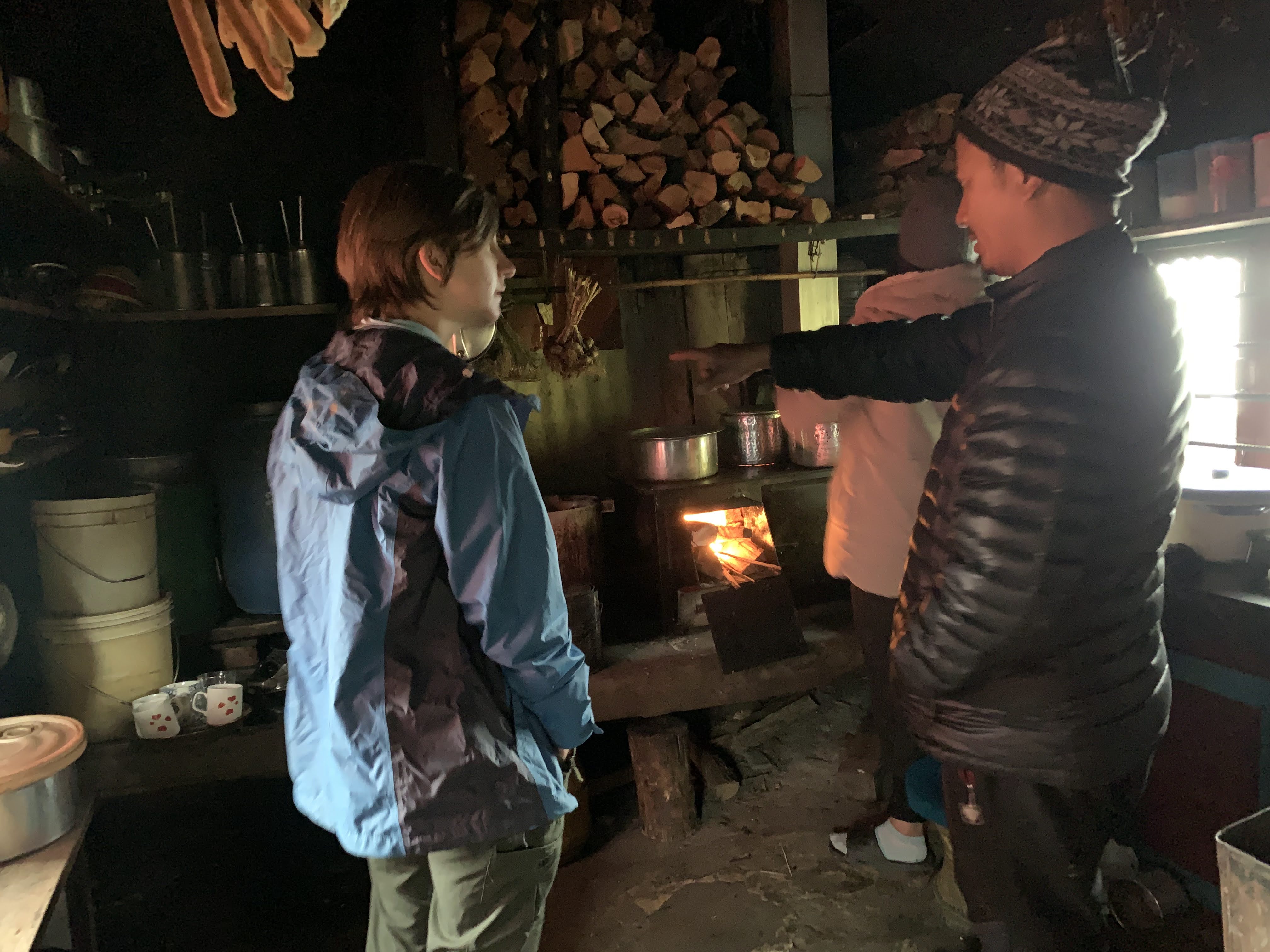 Victoria and Naresh staying warm by improved cookstove that was distributed by RPN to homestay.
Victoria and Naresh staying warm by improved cookstove that was distributed by RPN to homestay.
While the weather was predictably unpredictable, Naresh and I were able to keep ourselves busy at the restoration site caring for the hundreds of saplings in the nursery and planting about 50 trees at the restoration site. Some highlights included filling up over 200 polypots and transplanting seedlings for next year, chasing cows downhill and out of the restoration area, and building bamboo fences to replace damaged fences along the restoration site. We even found time to hike into the Singalila National Park in India to try to find evidence of red pandas in the area.
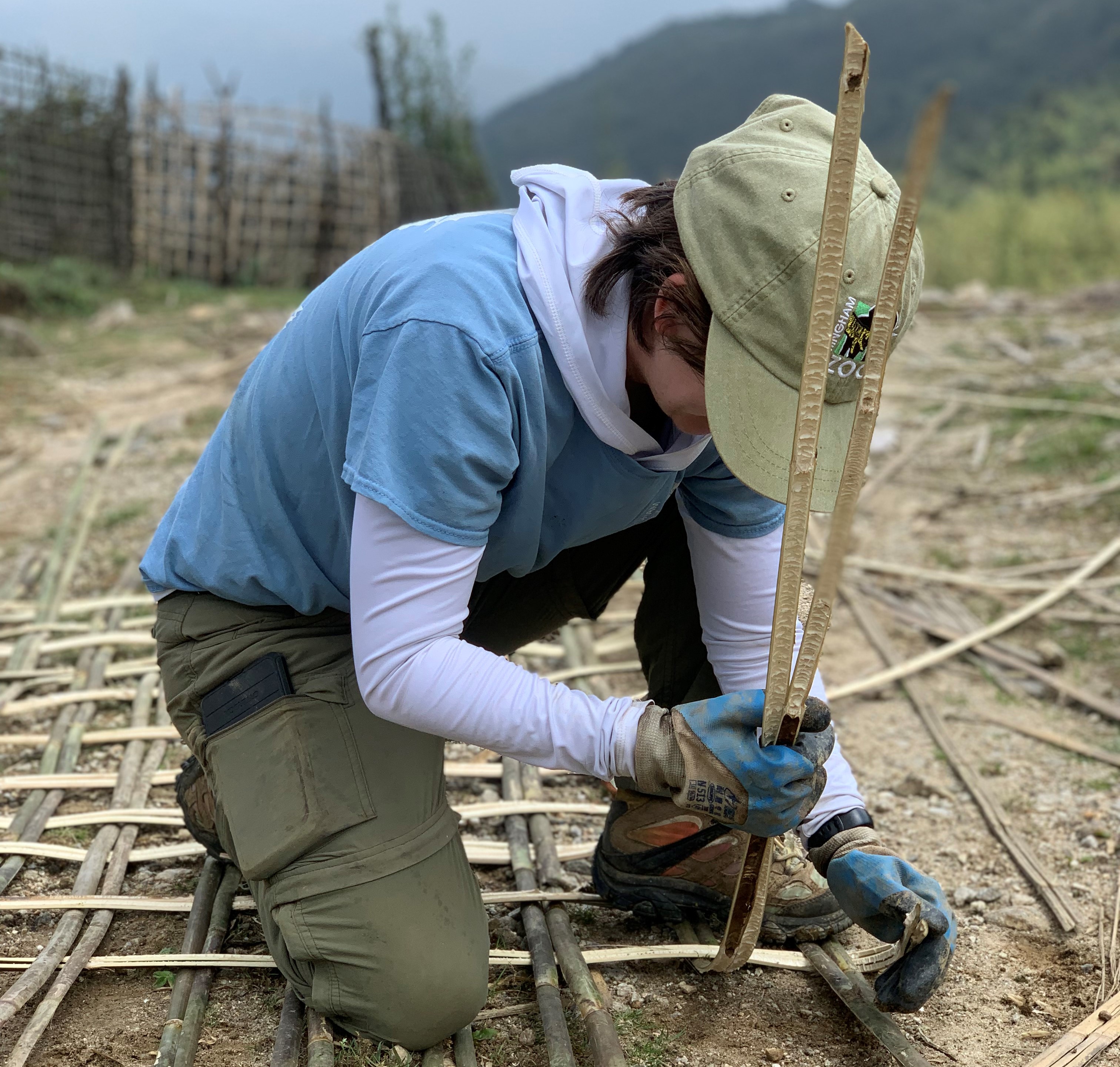 Repairing damaged bamboo fences that protect restoration area.
Repairing damaged bamboo fences that protect restoration area.
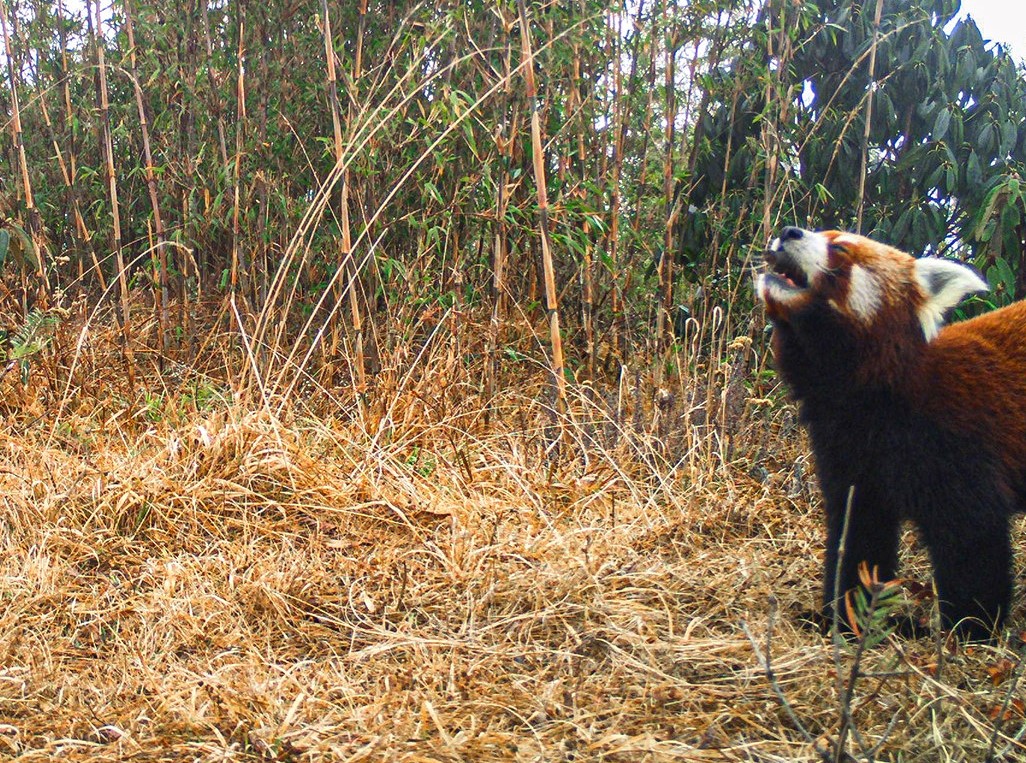 Red panda photographed by RPN camera trap in Jaubari restoration site in July of this year!
Red panda photographed by RPN camera trap in Jaubari restoration site in July of this year!
While I never saw a red panda during my stay, my trip was unforgettable and a once-in-a-lifetime opportunity. I am grateful for the opportunity to go out into the field and make a lasting impact on the conservation of my favorite species. Decades from now, I can point to the restoration site and say I helped plant those trees and took care of those saplings, and I am so excited that one day those trees will bear fruit that red pandas will enjoy. If you would like to make a lasting impact on conservation, you can donate to RPN or join one of their ecotrips in Nepal. I am grateful to RPN, especially Sonam Tashi Lama and Janam Shrestha for coordinating my trip. I am grateful to Naresh Shrestha for translating and being my guide for two weeks (as well as listening to all of my bad jokes). Lastly, I am grateful to the Birmingham Zoo for providing the opportunity for me to go out to the field and assist with the conservation of this amazing and unique species.
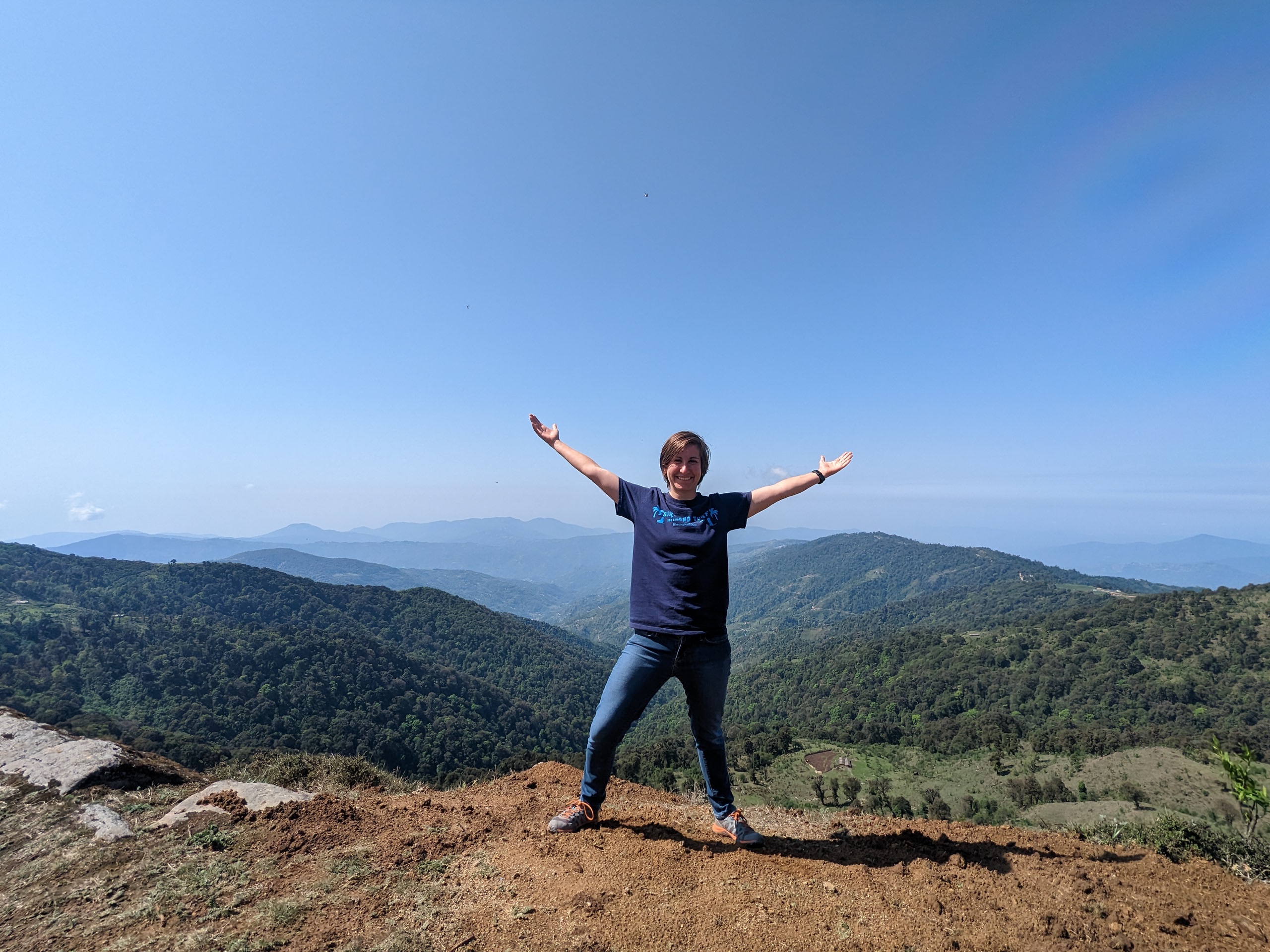 Victoria Kaml in Ilam district of the Panchthar-Ilam-Taplejung (PIT) corridor, eastern Nepal.
Victoria Kaml in Ilam district of the Panchthar-Ilam-Taplejung (PIT) corridor, eastern Nepal.
Victoria Kaml
Lead Animal Care Professional of the Predator department
Birmingham Zoo
Check out RPN's Plant A Red Panda Home campaign and learn more about this important place for conservation in in Red Pandas Return To Jaubari – Part 1 and Part 2!
